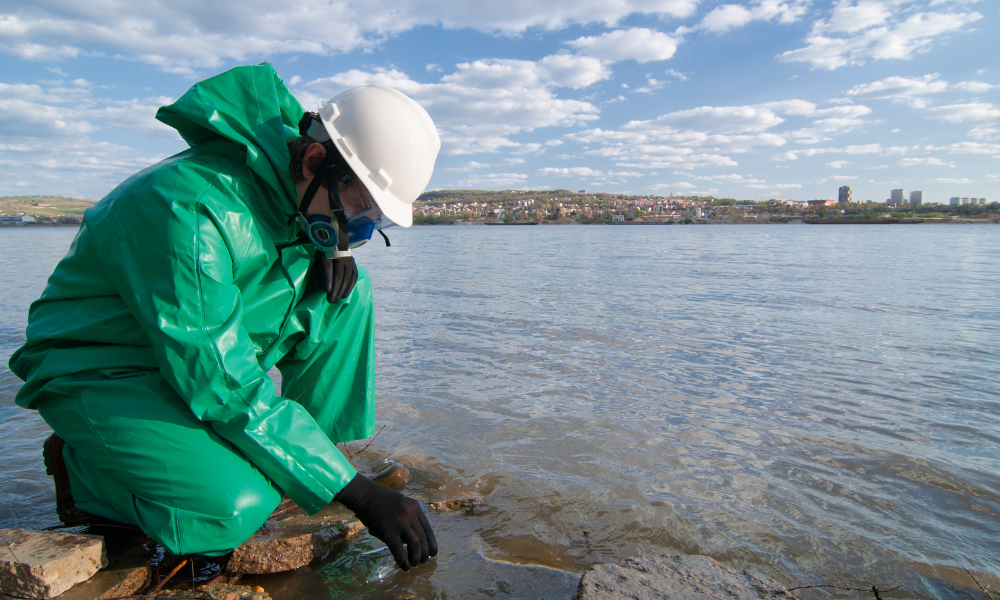Expert-Approved Water Testing Methods in Chennai for Safe Drinking Water

Access to safe drinking water is a fundamental right, yet many residents in Chennai face challenges due to increasing water contamination. Heavy metals, sewage leaks, and industrial waste are just a few of the pollutants that can degrade water quality and pose major health hazards. This makes water testing in Chennai not just important but essential for every household and business.
In this comprehensive guide, we’ll explore:
- ✔ The importance of water quality assessment for human health
- ✔ Common water contamination sources in Chennai
- ✔ Certified labs employ expert-approved water testing techniques
- ✔ How to pick Chennai's top water testing laboratories
- ✔ Steps to get your water tested and ensure safety
By the end, you’ll understand how professional Chennai water analysis can protect your family from waterborne diseases and long-term health issues.
Why Is Water Testing Important in Chennai?
Chennai’s water supply comes from various sources, including groundwater, reservoirs, and municipal pipelines. However, these sources are vulnerable to contamination due to:
- • Industrial pollution (heavy metals, chemicals)
- • Agricultural runoff (pesticides, nitrates)
- • Old plumbing systems (lead, rust)
- • Sewage and wastewater mixing (bacteria, viruses)
Health Risks of Contaminated Water
Short-term effects: Diarrhea, vomiting, stomach infections
Long-term effects: Kidney damage, cancer, neurological disorders
Regular water quality testing helps detect harmful substances before they affect your health.
Common Water Contaminants Found in Chennai
1. Biological Contaminants
- Bacteria (E. coli, coliform) – Causes severe gastrointestinal illnesses
- Viruses & Parasites – Leads to hepatitis, cholera, and dysentery
2. Chemical Contaminants
- Heavy Metals (Lead, Arsenic, Mercury) – Damages kidneys, nervous system
- Pesticides & Fertilizers – Linked to cancer and hormonal disorders
- Excessive levels of fluoride and chlorine can be dangerous
3. Physical Contaminants
- Sediments & Turbidity – Affects water clarity and safety
- Dissolved Solids (TDS) – High levels make water unfit for drinking
Expert-Approved Water Testing Methods in Chennai
Certified labs like Falcon Lab use advanced techniques to ensure accurate Chennai water analysis. Here are the most reliable methods:
1. Physical Testing
- Turbidity Test – Measures water clarity (cloudy water indicates contamination)
- TDS Meter Test – Checks dissolved salts and minerals (ideal range: <500 ppm)
2. Chemical Testing
- pH Testing – Determines acidity/alkalinity (safe range: 6.5 to 8.5)
- Heavy Metal Testing (AAS/ICP-MS) – Detects lead, arsenic, and mercury
- Chlorine Residual Test – Ensures safe disinfection levels
3. Microbiological Testing
- Bacterial Culture Test – Identifies harmful bacteria like E. coli
- PCR Testing – Detects viruses at a genetic level
4. Advanced Lab Techniques
- HPLC (High-Performance Liquid Chromatography) – Analyzes pesticides & organic pollutants
- Atomic Absorption Spectroscopy (AAS) – Precise detection of toxic metals
How to Choose the Best Water Testing Labs in Chennai?
Not all labs provide reliable results. Here’s what to look for:
- ✅ NABL/ISO Certification – Ensures accuracy and credibility
- ✅ Advanced Equipment – Like AAS, HPLC for precise testing
- ✅ Quick Turnaround – Fast results without compromising quality
- ✅ Detailed Reports – Clear explanations and safety recommendations
Falcon Lab is a trusted name in certified water testing in Chennai, offering comprehensive analysis and expert guidance.
Step-by-Step Process for Water Testing in Chennai
- Sample Collection – Use sterile bottles; avoid touching the inside.
- Select Testing Parameters – Basic (pH, TDS) or advanced (heavy metals, bacteria).
- Lab Submission – Send samples to a certified water testing lab.
- Analysis & Report – Get detailed findings and safety recommendations.
How Often Should You Test Your Water?
- Residential Use: Once a year, or more frequently if color or flavor changes
- Commercial/Industrial Use: Quarterly (for compliance)
- After Contamination Suspicions: Immediately test if water smells/tastes odd
Ensure Safe Drinking Water with Professional Testing
With increasing pollution, water testing in Chennai is no longer optional—it’s a necessity. By choosing certified water testing services like Falcon Lab, you can protect your family from hidden dangers in your water supply.

